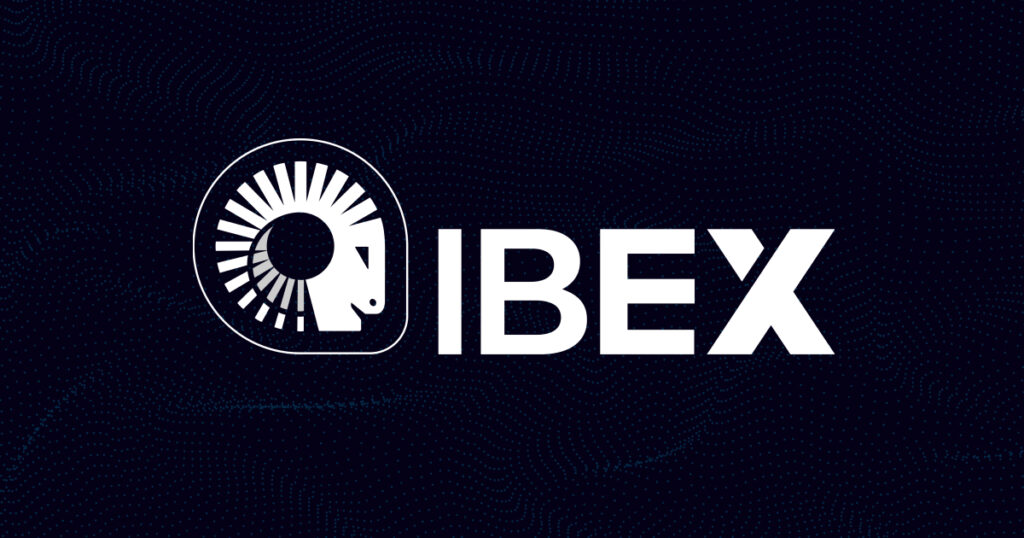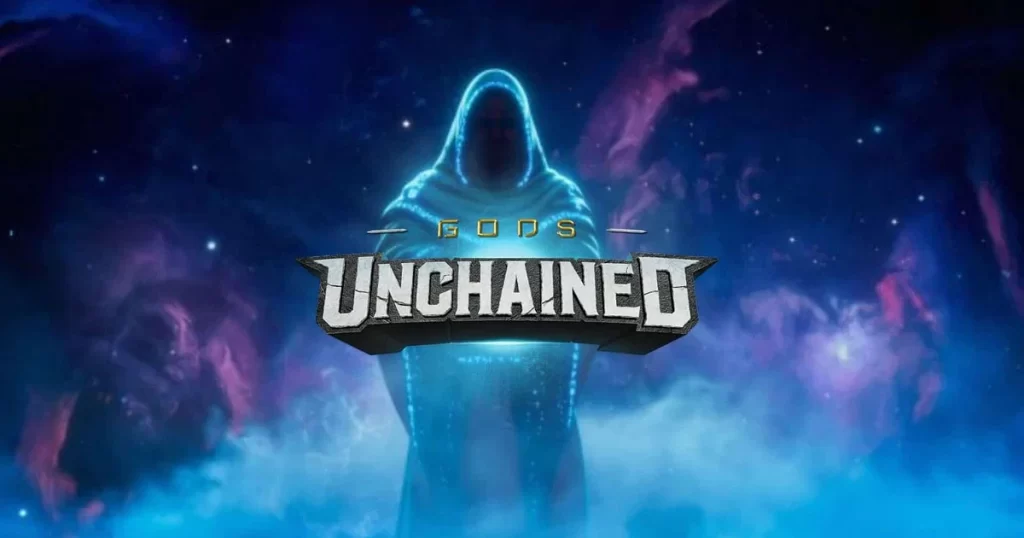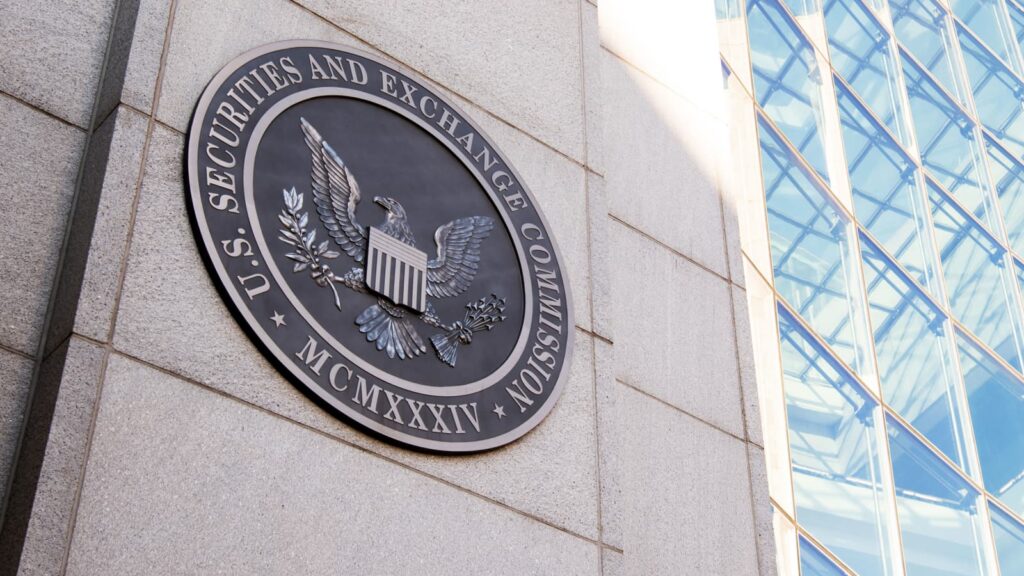A creditor of the recently bankrupted cryptocurrency exchange FTX has utilized a decentralized finance (DeFi) protocol called Arcade to pledge a claim as collateral for a loan.
This groundbreaking transaction marks the first on-chain loan backed by an FTX claim, as reported by the bankruptcy claims platform Found.
The creditor tokenized their claim, representing its ownership through a nonfungible token (NFT). On June 23, this NFT was utilized as collateral to secure a loan of $7,500, which is expected to be repaid within a five-day period.
In the event of a payment default, the lender retains the right to claim the collateralized amount, which stands at $31,307.
This transaction exemplifies the concept of real-world asset (RWA) tokenization, wherein blockchain technology is employed to represent ownership rights of tangible assets.
DeFi has emerged as a prominent sector for asset tokenization, enabling a wide range of real-world assets such as stocks, government bonds, real estate, and commodities to be tokenized.
Found took to Twitter to disclose that the original creditor and lender underwent biometric Know Your Customer (KYC) and Anti-Money Laundering (AML) screenings.
The company’s website reveals that users can access loans using bankruptcy claims as collateral, subject to a 10% transaction fee upon successful trades.
FTX, the cryptocurrency exchange that filed for bankruptcy in November 2022, has locked billions of dollars in user accounts pending court proceedings.
Industry estimates suggest that FTX claim holders may recover between 35% and 66% of the face value of their claims.
The rise in crypto-related bankruptcy cases, particularly associated with the collapse of FTX, has inundated the courts over the past year.
Genesis Global Trading and BlockFi are among the crypto firms involved in these cases. As a result, there is a growing demand for on-chain claims solutions.
Found, which launched earlier this year, and Open Exchange, a claims trading platform established in April by the co-founders of the collapsed hedge fund Three Arrows Capital, are notable players in this space.
Other Stories:
Bitcoin (BTC) Predicted To Reach New All-Time High In This Month of 2023
ECB Executive Slams Cryptocurrencies as Platforms for Gambling, Calls for Regulatory Safeguards
Etherscan Launches AI-Powered Code Reader, Polygon Proposes zkEVM Upgrade
Coinbase Takes Unconventional Legal Approach Ahead of SEC’s Crypto Crackdown
Over the course of the past year, more than 100,000 login credentials for the renowned artificial intelligence chatbot, ChatGPT, have been leaked and traded on the dark web, as disclosed by a cybersecurity firm based in Singapore.
Group-IB, in a blog post on June 20, revealed that from June 2022 to May 2023, there were over 101,000 compromised logins from devices associated with OpenAI’s flagship bot that were exchanged on various dark web marketplaces.
Dmitry Shestakov, the head of threat intelligence at Group-IB, explained that the figure represents “the number of logs from stealer-infected devices that Group-IB analyzed,” and each log contained at least one combination of login credentials and passwords for ChatGPT.
During May 2023, the availability of ChatGPT-related credentials peaked at nearly 27,000 on online black markets.
Of the compromised logins available for sale, the Asia-Pacific region accounted for the largest share, making up approximately 40% of the nearly 100,000 total.
Indian-based credentials held the highest number, surpassing 12,500, while the United States ranked sixth with nearly 3,000 leaked logins. France secured the seventh position globally and led in Europe.
Creating ChatGPT accounts is possible through OpenAI directly, or users can opt to utilize their Google, Microsoft, or Apple accounts for login and access.
While Group-IB did not conduct a detailed analysis of the signup methods, Shestakov suggested that primarily accounts utilizing a “direct authentication method” were exploited.
However, OpenAI is not accountable for the compromised logins, as the logs containing saved ChatGPT credentials are not a result of any weaknesses in the infrastructure of ChatGPT.
The blog post by Group-IB also pointed out a notable increase in the number of employees using ChatGPT for work purposes.
It cautioned that confidential information about companies could be at risk of exposure since user queries and chat history are stored by default. Unauthorized individuals could exploit this information to launch attacks against companies or individual employees.
According to Shestakov, cybercriminals infected “thousands of individual user devices worldwide” to steal this information.
He emphasized the significance of regularly updating software and implementing two-factor authentication as a means to mitigate such risks.
Interestingly, Group-IB mentioned that the press release itself was written with the assistance of ChatGPT.
Other Stories:
Federal Reserve Pushing For Robust Oversight of Stablecoins as Form of Money
Millions of Mexicans To Be Able To Pay Internet Bills Via Bitcoin Lightning Network
President Biden Convenes Meeting with Experts to Navigate Future of AI Safety and Policy
Bitcoin 2023, the annual conference held in Miami, Florida, was relatively subdued this year, lacking the high-profile announcements of previous years. However, a significant partnership with the potential to impact Mexico’s economy went unnoticed.
José Lemus, CEO of Ibex Mercado, made an important announcement during Bitcoin 2023 Industry Day. He revealed a partnership with Grupo Salinas, one of Mexico’s largest corporate conglomerates.
The collaboration aims to enable millions of Mexicans to pay their internet bills at Total Play, a popular telecoms company, using the Bitcoin Lightning Network.
The Salinas Group, owned by billionaire founder Ricardo Salinas Pliego, operates numerous businesses across Mexico and is known for its support of Bitcoin.
This integration not only facilitates Bitcoin adoption for millions of Mexicans but also extends Lightning capabilities to a range of retailers within the vast Salinas conglomerate. Lemus compared it to a scenario where Best Buy, Bank of America, Fox News, and an NFL team were all owned by the same individual, stating that they would all have Lightning capabilities in the future.
Lemus highlighted that this partnership is just the beginning of Lightning functionality across Grupo Salinas.
The conglomerate plans to develop a Lightning app for employees and a super app for soccer teams to enhance fan engagement through innovative ways, similar to the Perth Heat, an Australian baseball team that adopted Bitcoin as a standard currency.
The Lightning Network integration presents opportunities for financial inclusion in Mexico. Lemus emphasized the potential to bank the unbanked and underserved populations, as well as the broader benefits of financial inclusion, such as access to funding and expanded markets.
He expressed his belief that Mexico could become a thriving Bitcoin destination.
While the timeline for complete Bitcoin integration in daily life may still be some time away, Lemus estimated that within 18 months, individuals could conduct most of their activities using Bitcoin.
However, certain areas, such as taxes and rent, might not yet operate on Bitcoin.
The partnership with Grupo Salinas required 18 months of preparation, indicating the complexity of implementing such initiatives. Lemus indicated that more partnerships and projects are on the horizon in Mexico, although details are not yet available.
Overall, 2022 witnessed promising progress in Bitcoin and cryptocurrency adoption in Mexico, including the establishment of crypto remittance companies and the expansion of crypto exchanges.
With the Lightning partnership between Ibex Mercado and Grupo Salinas, the path to wider Bitcoin adoption in Mexico seems increasingly favorable.
Other Stories:
Polygon Co-founder Suggests Proposal to Improve Security of PoS network
United States Agencies Unite to Form Task Force Targeting Darknet and Cryptocurrency Crimes
Moody’s Issues Warning About Lack of Bipartisan Support for Crypto Regulation in the US
Immutable Games’ popular Web3 trading card game, Gods Unchained, has made its debut on the Epic Games Store, granting access to its impressive player base of 230 million customers. This exciting development was officially announced on June 21.
Gods Unchained is a captivating collectible trading card game that draws comparisons to popular titles like Hearthstone and Magic: The Gathering Arena.
However, what sets it apart is its innovative use of nonfungible tokens (NFTs) to represent each card.
These NFTs are built on the Ethereum layer-2 network known as Immutable X. Since its initial release in June 2019, Gods Unchained has steadily amassed a dedicated player base, reaching an impressive milestone of 80,000 weekly active players by January 2022.
The Epic Games Store, a digital game distribution platform akin to Steam and GOG.com, boasts a vast user base of over 230 million PC gamers.
This recent integration with the Epic Games Store marks a significant milestone for Gods Unchained, according to Daniel Paez, the executive producer of the game.
Paez expressed his enthusiasm, stating, “It is hard to overestimate the significance of Gods Unchained’s launch on Epic Games Store, one of the largest PC gaming platforms in the world.
We are extremely excited to present our game to a completely new and truly massive audience of traditional PC gamers and TCG enthusiasts.”
This release comes at a time when Web3 publishers are grappling with challenges from Steam, the dominant PC game distributor worldwide.
In October 2021, Steam made a controversial announcement, declaring that Web3 games were not welcome on its platform. In addition, it delisted Age of Rust due to the benefits it provided to owners of its NFTs.
Responding to Steam’s actions, former MetaMask team members took action and introduced a competing distribution platform called Hyperplay.
Hyperplay aims to counter Steam’s restrictions and provides access to the Epic Games and GOG.com stores through its own interface. Additionally, it curates a selection of Web3 titles. To further develop the platform and expand its reach, the Hyperplay team recently secured $12 million in funding on June 8.
With Gods Unchained now available on the Epic Games Store, it opens up new opportunities for the game’s growth and introduces it to a vast community of traditional PC gamers and trading card game enthusiasts.
This collaboration between Immutable Games and Epic Games marks an exciting chapter in the history of Gods Unchained, solidifying its position in the gaming industry.
Other Stories:
Moody’s Issues Warning About Lack of Bipartisan Support for Crypto Regulation in the US
Binance Takes Steps Towards Enhanced Bitcoin Transactions with Lightning Network Integration
Binance Takes Steps Towards Enhanced Bitcoin Transactions with Lightning Network Integration
Valkyrie, a cryptocurrency fund manager, has joined the rush of financial firms applying for a Bitcoin spot exchange-traded fund (ETF).
This move comes as several other companies have recently filed similar applications with the United States Securities and Exchange Commission (SEC). On June 21, Valkyrie submitted an S-1 registration form for a Bitcoin spot ETF, with plans to list the fund on the Nasdaq under the symbol BRRR.
Valkyrie is no stranger to the world of Bitcoin futures ETFs. In October 2021, it launched the Valkyrie Bitcoin Strategy ETF (BTF), becoming the second BTC futures ETF in the U.S. Later in December, the firm introduced the Valkyrie Balance Sheet Opportunities (VBB), which it eventually liquidated in October 2022. Valkyrie also manages the Valkyrie Bitcoin Miners ETF (WGMI), which tracks companies that generate revenue or profits from BTC mining.
The recent activities of its competitors seemingly motivated Valkyrie to take action.
In a podcast interview with Cointelegraph’s Hashing It Out in March, Steven McClurg, Valkyrie Investments’ chief investment officer, expressed his belief that a BTC ETF would only be possible “in a future administration after the next elections or through legislative action.”
However, Valkyrie’s move comes amidst a flurry of ETF applications. BlackRock applied to list a BTC spot ETF as a trust on the Nasdaq on June 15, while WisdomTree and Invesco followed suit with similar applications on June 20.
Additionally, there are unconfirmed reports that Fidelity is also preparing to file an application for a BTC spot ETF. As these developments unfold, the price of BTC continues to rise, currently up 6.41% at the time of writing.
With the growing interest in cryptocurrency investments, financial firms are recognizing the demand for regulated investment vehicles like ETFs.
These funds provide investors with exposure to Bitcoin without having to directly hold the digital asset. While the SEC has yet to approve any Bitcoin spot ETF applications, the increasing number of filings indicates a growing push for such investment products in the market.
Valkyrie’s decision to apply for a BTC spot ETF aligns with its existing offerings in the cryptocurrency space.
If approved, the ETF would provide investors with another option to gain exposure to Bitcoin’s performance. The SEC’s review process will determine the fate of these applications and shape the future of cryptocurrency investment opportunities for retail and institutional investors alike.
Other Stories:
United States Agencies Unite to Form Task Force Targeting Darknet and Cryptocurrency Crimes
Moody’s Issues Warning About Lack of Bipartisan Support for Crypto Regulation in the US
Polygon Co-founder Suggests Proposal to Improve Security of PoS network
Tech giant Alibaba has announced the appointment of a crypto-friendly chair following the departure of Daniel Zhang. Joe Tsai, the current executive vice chair, will take over as the company’s chair.
Tsai has shown support for various cryptocurrency projects through his wealth manager, Blue Pool Capital. He has made investments in crypto firms such as FTX, Polygon, and Artifact Labs.
Tsai’s appointment comes as Zhang steps down as chair and CEO of Alibaba, with plans to continue serving as the chair and CEO of Alibaba Cloud Intelligence Group.
Replacing Zhang as Alibaba CEO and joining the company’s board of directors will be Eddie Yongming Wu, the chair of Taobao and Tmall Group.
Alibaba is one of the world’s largest companies, with a market capitalization of over $225 billion. Tsai expressed excitement about working with Wu to drive the company’s growth through technology and innovation.
China’s stance on cryptocurrencies and blockchain technology has been a mix of regulations and trials. In 2021, the country cracked down on mining firms, leading to many companies relocating to other jurisdictions.
However, China has also been actively exploring the implementation of a digital yuan through the People’s Bank of China.
The regulation of nonfungible tokens (NFTs) in China remains uncertain. Alibaba ventured into the NFT space by launching an NFT marketplace for copyright trading in 2021. However, the company’s NFT solution under its cloud business unit was mysteriously removed shortly after its launch.
With Tsai’s appointment as chair, there are expectations that Alibaba may further explore and embrace cryptocurrencies and blockchain technology.
Tsai’s previous investments in crypto firms indicate his positive sentiment toward the industry. As China continues to navigate the regulatory landscape for cryptocurrencies and blockchain, Alibaba’s position and future involvement in this space will be closely watched.
Other Stories:
Big Eyes Launch: Did All of the Investors Just Get Scammed?
Bitcoin Surpasses 50% Market Dominance For First Time in 2 Years
Fund Manager Predicts Bitcoin Will Reach $1 Million, Gives Bullish Coinbase Assessment
Big Eyes Coin has attracted a lot of attention in the crypto space in recent months, but is this meme token legit or a scam?
Operating as an ERC-20 token, the project plans to make its first appearance on Uniswap, with a top-tier CEX yet to be revealed by the project’s founders.
The $BIG token presale encountered a few delays, but impressively managed to raise an estimated $35 million. This achievement has stirred speculations about the potential price of Big Eyes coin post its Initial Coin Offering (ICO). Currently in its thirteenth stage, Big Eyes is priced at $0.00052.
While the token’s hard cap of $51.2 million may not be reached by the launch date, the Big Eyes team remains confident that the funds raised thus far are sufficient to advance the project, having achieved the soft cap.
A pivotal event in the crypto landscape, the Bitcoin halving, is due in April 2024. History indicates that this event could potentially catalyze the next crypto bull run. Given this projection, if Big Eyes successfully launches and maintains its popularity until 2025, it could theoretically benefit from this upswing. However, this would also require recession concerns to dissipate, positively influencing the overall crypto market.
Why Meme Coins Are Often Scams
In the current crypto landscape, meme coin scams have surged, capitalizing on the skyrocketing popularity of meme coins like Dogecoin and Shiba Inu. These scams prey on the euphoria and greed commonly seen in retail investors seeking to strike it rich in a volatile, yet promising market. Understanding the mechanisms of these scams and identifying their red flags is imperative to avoid falling prey to such fraudulent schemes.
Meme coins, primarily driven by online hype, social media buzz, and celebrity endorsements, often lack substantial technological backing or practical use. Despite some meme coins, such as Dogecoin, experiencing legitimate success, many merely ride the wave, offering no real value or long-term potential.
Meme coin scams typically begin with the creation of a new coin promising extraordinary returns. Scam developers employ aggressive marketing techniques, such as fake celebrity endorsements, extensive advertising, and orchestrated “pump and dump” schemes, luring investors with the prospect of being the “next big thing” in crypto.
Pump and dump schemes involve fraudsters artificially inflating the coin’s price using coordinated buying and social media campaigns, fostering an illusion of legitimacy and FOMO among potential investors. Once the coin’s price reaches a certain threshold, the fraudsters sell (or “dump”) their holdings, causing the coin’s price to plummet and leaving other investors with significant losses.
The infamous Squid Game token is a prime example of such a scam. Following a massive price surge, the token’s price crashed in minutes when the developers allegedly performed a “rug pull,” abandoning the project and absconding with the funds.
While these scams may seem daunting, here are some key red flags to consider: over-promising returns; lack of transparency; aggressive marketing tactics; and limited exchange listings.
Is Big Eyes Coin a Scam?
The future of Big Eyes is contingent upon the team’s ability to adhere to its roadmap and dispel the prevalent FUD (Fear, Uncertainty, and Doubt) surrounding the project. A closer look at the project, however, reveals a multitude of red flags suggesting it might be a scam or rugpull.
A series of aggressive paid marketing campaigns on numerous crypto and non-crypto websites, coupled with an extended presale, cast significant doubts on the legitimacy of Big Eyes Coin. The lack of transparency about the project’s leadership and founders further compounds these suspicions, prompting the recommendation to avoid investing in Big Eyes.
Furthermore, in mid-June, amid the token’s launch on centralised exchanges, several holders reported issues accessing their tokens in MetaMask, with many accusing Big Eyes of being a scam.
The project’s founders have insisted that this is a technical issue which they are addressing, but it certainly looks like Big Eyes was a scam all along.
Other Articles:
Poloniex Review: Is this crypto exchange a scam?
Bored Ape Yacht Club (BAYC) utility – Why are investors spending millions on these NFTs?
Do Kwon, the founder of Terraform Labs, has denied allegations of forging travel documentation and disassociated himself from any financial connections with Milojko Spajić, the leader of the Europe Now party.
In a recent hearing at the Montenegrin Basic Court, Kwon claimed that he was unaware of the alleged forgery of his passport and shifted the blame onto a Chinese-named agency.
According to a report from South Korean news outlet Segye Ilbo on June 17, Kwon stated that he had obtained his purportedly forged passports, including a Costa Rican one, through third-party “agencies.”
He explained that a Singaporean agency, recommended by a friend, facilitated his acquisition of the Costa Rican passport, while another agency was responsible for the Belgian passport.
Kwon maintained that he had been using his Costa Rican passport for a long time and had no reason to doubt its authenticity.
When pressed for details about the agency involved in obtaining the passports, Kwon claimed he could not recall the specifics but mentioned that its name was in Chinese characters.
During the court proceedings, Kwon was questioned alongside his former colleague, Han Chong-joon, who served as the Chief Financial Officer of Terraform Labs. Both individuals faced allegations of passport forgery and were also investigated for potential financial donations to Milojko Spajić. Kwon’s lawyers vehemently denied any financial connections between their client and Spajić, refuting the claims made in a letter that Kwon had supposedly sent to Montenegrin officials ahead of the country’s recent elections.
Following the hearing, Judge Ivana Becić announced that a verdict on the forgery charges would be delivered on June 19. Kwon will remain in extradition custody for a maximum of six months while the local court considers South Korea’s extradition request.
Kwon and Chong-joon were initially arrested by local authorities on March 23 after an attempt to leave Montenegro on a private flight to Dubai using falsified passports.
Although their lawyers initially secured bail approval in the amount of 400,000 euros ($436,000), this decision was later overturned on appeal.
However, on June 5, their appeal was dismissed, and bail was granted for both individuals. They are now subject to close monitoring by local police, and any violation of the approved conditions or departure from their residence could result in the forfeiture of their bail.
The collapse of Terraform Labs’ Terra ecosystem in May 2022 led to estimated losses of up to $40 billion, further adding to the controversies surrounding the company and its founder, Do Kwon.
Other Stories:
Crypto trading platform suspends trading of SOL, MATIC, and ADA
SEC addresses enforcement action against Binance and Coinbase
Coinbase, a leading cryptocurrency exchange, has criticized the United States Securities and Exchange Commission (SEC) for its evasive responses during their ongoing legal dispute.
In a letter filed on June 17th with the U.S. Court of Appeals, Coinbase’s lawyers expressed their dissatisfaction with the SEC’s failure to address Coinbase’s rulemaking petition, which urges the SEC to establish a regulatory framework for digital assets.
The letter from Coinbase accused the SEC of avoiding direct answers and instead reiterating talking points when asked to address the inconsistency between its litigating position and its actions and statements elsewhere.
This response was prompted by the SEC’s request on June 13th for an additional 120 days to respond to Coinbase’s rulemaking petition.
Coinbase further claimed that the SEC is unwilling to provide updates on its decision to the Court, demonstrating its reluctance by expressing discontent even when ordered to do so.
The prolonged silence from the SEC and the resulting delays in decision-making, according to Coinbase, continue to burden the crypto industry. Furthermore, Coinbase expressed concerns that SEC Chair Gary Gensler’s actions are leading to irreparable damage to both a U.S. public company and the entire industry.
Coinbase’s Chief Legal Officer, Paul Grewal, took to Twitter on June 17th, highlighting the government’s uncommon defiance of a direct question from a federal court.
Grewal expressed hope that the court would issue a writ of mandamus, compelling the SEC to fulfill its official duties under the law, considering that Coinbase’s petition had been rejected.
Additionally, Coinbase has requested that the court impose a deadline of 60 days or less, commencing from June 13th, as an alternative to the SEC’s proposed 120-day extension.
In a separate case on June 6th, the SEC filed a lawsuit against Coinbase, alleging that the exchange had violated several securities regulations, primarily by allegedly offering cryptocurrencies that the regulator considers unregistered securities.
Coinbase’s criticism of the SEC’s lack of transparency and failure to address their concerns reflects the growing tensions between cryptocurrency companies and regulatory authorities.
As the crypto industry continues to evolve, the outcome of these legal battles will have significant implications for the future of digital assets in the United States.
Other Stories:
BUSD plummets down stablecoin rankings
Crypto trading platform suspends trading of SOL, MATIC, and ADA
SEC addresses enforcement action against Binance and Coinbase
Gurbir Grewal, the director of the Securities and Exchange Commission (SEC) division of enforcement in the United States, has acknowledged that recent enforcement actions against several cryptocurrency firms were necessitated by the industry’s widespread noncompliance.
This move has drawn criticism from numerous lawmakers and leaders within the crypto sector.
During an event held in New York by law firm Lowenstein Sandler and Rutgers University Law School, Grewal spoke about the SEC’s approach to the crypto space.
The event also featured Faryar Shirzad, the chief policy officer of Coinbase. According to a Reuters report on June 16, Grewal explained that the SEC had previously taken a thoughtful and incremental approach to its actions in the crypto industry.
However, this method failed to address the issue of unregistered securities offerings that the regulator sought to tackle.
Grewal emphasized that the crypto industry seemed to have been built on a culture of noncompliance.
Even if the SEC were to devise a tailor-made set of rules, compliance would still be lacking within the industry. Consequently, the SEC was compelled to alter its strategies in response to this prevailing trend.
The enforcement director’s remarks shed light on the rationale behind the recent enforcement actions taken by the SEC against various crypto firms.
These actions have sparked controversy and drawn criticism from both lawmakers and industry leaders. The SEC’s shift in strategies indicates a growing concern within the regulatory body regarding the extent of noncompliance within the crypto industry.
By acknowledging the need for a change in approach, Grewal’s comments suggest that the SEC aims to adapt its enforcement efforts to effectively address the issue of unregistered securities offerings in the crypto sector.
It remains to be seen how the SEC will navigate this challenge and whether its revised strategies will yield the desired outcomes.
As the crypto industry continues to evolve, regulatory bodies like the SEC are faced with the task of striking a balance between fostering innovation and safeguarding investors.
The enforcement actions taken by the SEC reflect an ongoing effort to establish clearer regulatory frameworks and promote compliance within the crypto space.
Other Stories:
Arbitrum governance token’s (ARB) price set for reversal after airdrop












